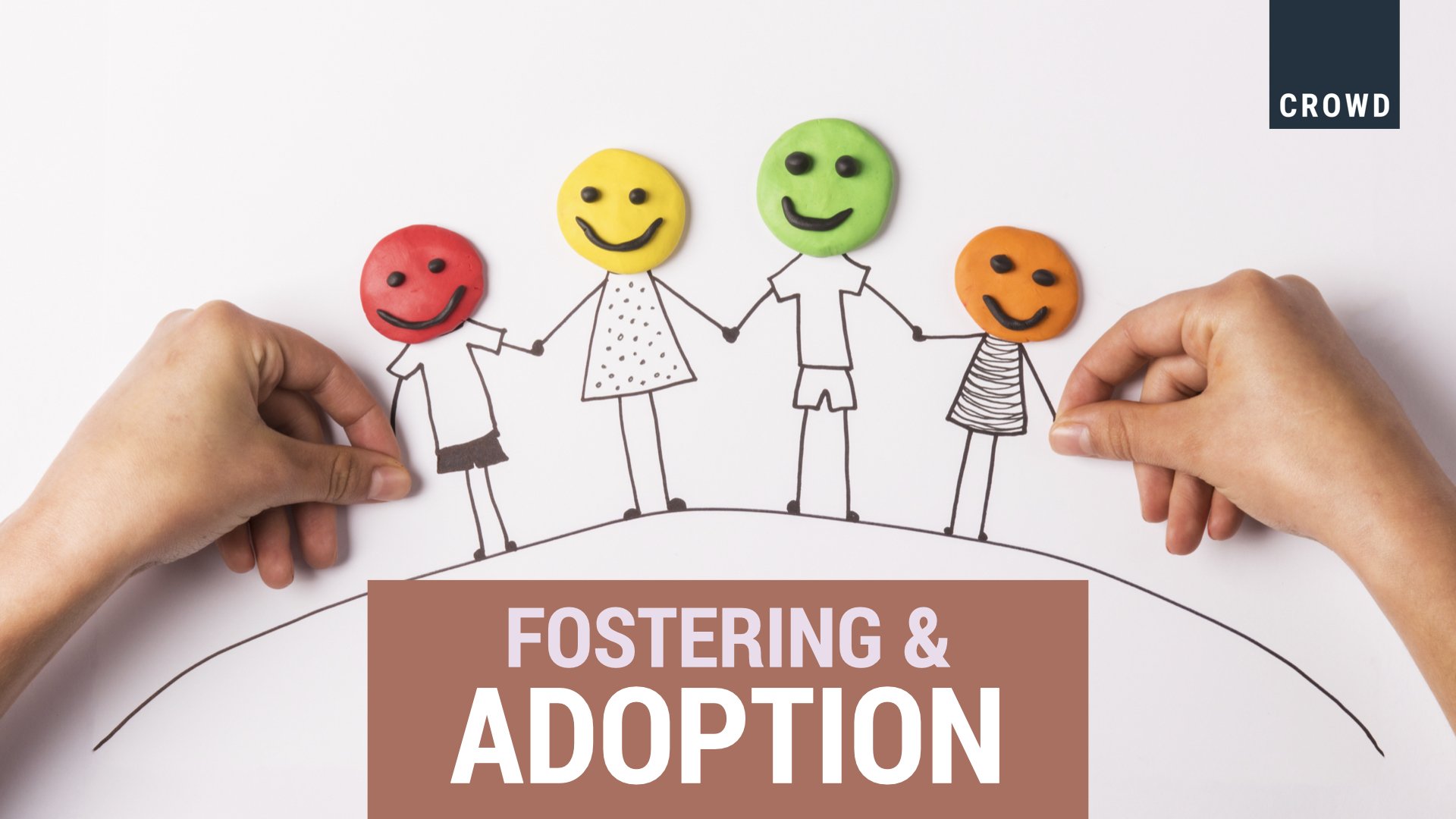What does the Bible say about Mental Health?
Video Timeline
WELCOME
TALK with Lisa Orange
WORSHIP
CONVERSATION STREET with Matt & Frank
Podcast:
What does the Bible say about Mental Health?
— Lisa Orange
I'm excited to be answering this question today. I've worked in mental health in lots of different ways for most of my working life. I'm currently a therapist, so this is a subject that's very close to my heart. And I think the Bible has a lot to say about it. So what do we mean when we talk about mental health?
Mental health is about our whole being, I think, not just our minds. It is about our thoughts, but it's also about our emotions and our physical health and how they all interconnect and influence one another. So our thoughts can impact our feelings and our feelings can impact our thoughts, and our brain and the nervous system respond.
So if someone is having anxious thoughts and feelings or feels unsafe in a situation, then the body is also responding by either tensing up or having shallow breathing, sweating, and stomach churning. And so that just gives a sense of how our whole being is involved when it comes to mental health.
Good vs Bad Mental Health
So what is the difference then between good mental health and not-so-good mental health? How do we work that out?
We might describe good mental health as thinking and feeling good about ourselves and the world and being in the world. We might think of it as feeling happy and content and having positive relationships in our lives. We might see poor mental health as the opposite of that. So that might be not feeling good about ourselves, low self-esteem. Maybe feeling sad or having a low mood or being anxious or feeling isolated.
Now, in reality, mental health is more nuanced than that, more complex because good mental health isn't about feeling good or happy about ourselves all the time. The reality is that we can have a whole range of feelings on any one day, that's normal because each day has different challenges. And each day we can feel frustrated or frustrated with ourselves, frustrated with other people. But it's when low mood, anxious feelings, and negative thoughts about ourselves and the world become persistent and severe, that's when it can become extremely disabling and distressing and impactful on a person's life. But it's also the case that for many people there's functioning with underlying depression and anxiety. So on the surface, looking okay and living life, but inside really struggling with these difficult feelings. So actually mental health difficulties impact people in different ways to many varying degrees.
One way we can think about and understand mental health is through terms of diagnoses like depression and anxiety, which I've already mentioned. But we might also think about schizophrenia or bipolar, or we might think about things like addiction and self-harm. These diagnoses and definitions can be really important for people for understanding and validating what is being experienced and for ensuring that the right help and support are in place. However, they can also bring discrimination and misunderstanding and stigma, which isn't good. And actually, what is behind each diagnosis and behaviour are stories and experiences that people have been through and usually very difficult experiences. And we might use then the word trauma to describe some of these, trauma being a very stressful, distressing, or frightening experience.
Factors that affect mental health
In my work, I'm always really interested to hear and understand people's stories. These stories and experiences, whether it's about childhood and growing up or something more recent, our childhood experiences matter because this is where our self-esteem is formed. It's how we form how we feel about ourselves and the world around us. So if there is trauma or a lack of love and emotional support, or both of those things, then the child can develop negative beliefs and feelings about themselves. And often the world doesn't seem or feel like a safe place to be. How we think and feel about ourselves and the world is key to our mental well-being because it impacts everything we do and how we approach life and how we feel in the world and around other people. So we can see how childhood trauma and poor attachment to caregivers can have a lasting effect on a person's mental health, right through into adulthood. And so this is really important for us to understand when we are thinking about mental health.
And then there are difficult experiences and traumas that we experience as adults, they impact our mental health too. And life has many challenges - bereavement, relationship problems, illness, isolation, and loneliness, financial difficulties, oppression, discrimination, injustice, violence. And then there are big life changes like a change of job or getting married or going through menopause. There are also external factors that bring pressure into our lives. Like worry, worry about climate change, and social media. This all has an impact on our mental health. And we've just been through a global pandemic. We're not fully through it yet. And the World Health Organization says that this has caused a 25% increase globally in anxiety and depression.
One thing that's clear is that relationships matter when it comes to mental health. Difficult relationships can be a source of harm and impact negatively on mental health and healthy and supportive and loving relationships can bring healing. And research is actually showing that the stronger a person's social attachments and support, the less likely it is for trauma experiences to have a lasting impact.
What does the Bible have to say about all of this?
As you might expect, the Bible doesn't use the phrase mental health, but it does talk about heart, soul, spirit, and mind. Each of these has unique but overlapping meanings and as a whole refer to our inner selves, our whole selves and our emotions and our thinking. The Bible doesn't specifically talk about mental illness either, but it does talk about being brokenhearted and sorrow and despair of the heart, anguish and despair of the soul. It mentions suffering, mourning, burden, sadness, fear, cares, worries and anxious thoughts. So the Bible is full of and reflects the reality of human pain and suffering and mental health difficulties, if you want to put it that way, in its words and tells stories that speak of this too. And in the life of Jesus, we see it, we see him rejected and abandoned and misunderstood, and we see him in anguish as he prepares to suffer and die.
It feels like there's such a lot that I could say about the Bible and mental health that I don't have time to cover all here. So I'm going to focus on a few areas. I'm going to focus on what the Bible tells us about who God is, how He feels about us and how He responds to our mental health difficulties. And I'm going to talk about how we can connect with God when we are struggling with our mental health. And finally, I'm gonna talk about what the Bible says about the importance of relationships and community to support our mental health.
How does God feel about and respond to us?
So firstly, how does God feel about us and how does he want to engage with us in our mental health?
We are deeply loved by God and the Bible is like a megaphone for God's love, persistently telling us about his unfailing love and compassion. His love is described as being so deep, high and long that we can never fully understand it. And then through Jesus, we are shown this love in how He lived and died for us so that we can have eternal life.
This isn't a wishy-washy love. It has grit and substance, and it is unconditional love. The Bible also tells us that we are deeply known and seen by God. He is not distant and distracted and cold. He's close to us, caring about every detail of our lives. In the book of Luke, Jesus says, what is the value of your soul to God? Could your worth be defined by any amount of money? God doesn't abandon or forget even the small Sparrow he has made. How then could he forget or abandon you? What about the seemingly minor issues of your life? Do they matter to God? Of course, they do. You never need to worry for you are more valuable to God than anything else in the world.
So God loves us and we are valuable to him and every detail of our lives matters. And this is important because as I've talked about earlier, what we need when we are growing up, and throughout our lives actually is to know and feel that we are loved. And we are connected with and we are seen and understood and accepted for who we are. And we need that to form a healthy view of ourselves and the world and to feel good about ourselves. Also, I recently did two bits of online training. One was about suicide, working with suicide, and another was about working with shame. And interestingly in each one of those, the presenters talked about love along with compassion and connection, being at the heart of what people needed and need.
Child psychiatrist Edward Hallowell says,
“Connection in the form of unconditional love is the single most important root of childhood happiness.”
— Edward Hallowell
And God loves us in this way. And even if we haven't experienced deep and unconditional love, God loves us in this way and wants us to experience the height and depth and breadth of this love. The Bible also shows us and tells us that God cares about our mental well-being. And here are just a few examples of what the Bible says about that.
It says that God is close to the brokenhearted, that He cares about the anguish of our souls. He comforts us like a mother comforts her child, and is a source of hope that fills us with joy and peace. It also says that He wants to give us rest. When it comes to our worries and our anxieties, we're invited to cast them on Him. And I see that like throwing them onto Him, throwing them away from us and onto Him because He cares for us. We're told that we can give these worries to him in prayer, and He will give us peace of heart and mind that is beyond our understanding.
Now I believe this and I've experienced it for myself. I've prayed about my worries and I've felt peace. I felt comforted by God in difficult times of my life. And there have also been times when I have felt persistently anxious, even when I've prayed and the anxiety has stayed, or God has felt distant and silent from me. And when I lost my dad about three and a half years ago, it was very suddenly, I experienced a mix of these things. I experienced God's comfort and closeness. And I experienced times when He felt really distant and I questioned Him and I wrestled with Him about what had happened and I grieved for my dad.
How to connect with God through mental health struggles?
I think sometimes we can feel that it's not okay as Christians to be anxious or sad for too long. And the Bible does encourage us to focus on praise and to praise God in difficult times and to be thankful in all circumstances. And there's a lot of good reason for that. One is that worship, praise, and thankfulness, are good for our mental health. When we praise God, we are speaking to our souls and reminding ourselves of who God is, that He is good. He is for us. He is with us, even if we don't feel like it, we can trust Him. Research also shows that thankfulness positively changes and impacts our brains. So there's something really important about that.
However, that's not the whole picture because the Bible also talks a lot about something called lamenting. And we see it throughout the Bible, but particularly in the Psalms. And the Psalms are this beautiful collection of songs or poems that include worship and praise and a declaration of who God is. But over a third of them are of lament. And here's an example of one from Psalm 69,
“Deeper and deeper I sink into the mire; I can’t find a foothold. I am in deep water, and the floods overwhelm me. I am exhausted from crying for help; my throat is parched. My eyes are swollen with weeping, waiting for my God to help me.”
And when we read the Psalms of lament, we can see the writers express and feel and connect with their pain and emotions and doubts and fears and despair. They don't hide or pretend or cover up these raw feelings from God. And psychologically, we know that connecting with and expressing these gut-level feelings has value. Bottling them up isn't good for us. And they can end up coming out in other ways that are often harmful to ourselves. Lamenting is about this, but it's also more than that. It's about moving toward God when sorrow tempts us to run away from it Him.
Mark Vroegop talks about this in a book that he's written all about lamenting, and he says,
“Lament can be defined as a loud cry, a howl or a passionate expression of grief.”
However, in the Bible, lament is more than sorrow or talking about sadness. It is more than walking through the stages of grief. Lament is a prayer in pain that leads to trust. We know the tomb is empty and Jesus is alive. And yet we still experience pain and sorrow. Lament is the language for living between the poles of a hard life and trusting in God's sovereignty. In the Psalms, we see what is a moving ebb and flow of anguish, praise, questioning, thankfulness, anger, despair, and a declaration of who God is. And God wants us to be real with Him. He wants us to draw close to Him and find comfort in our difficulties, and our mental struggles. He cares for us.
Importance of supportive relationships
Finally, I want to come back to the importance of supportive relationships, of community and church. In my own experience of loss and grief, we were supported so well by family and friends in and outside of the church. People came alongside us, they were with us in our grief, not explaining it away or spiritualizing it, but simply bringing comfort and practical support and care. And this made all the difference. This helped us through a very difficult time. And God can bring and does bring direct comfort and healing. And the Bible tells us that he often brings it supernaturally and suddenly, but the Bible also shows us that God intends for comfort and healing to come through human relationships, to come through each other.
And we see this talked about in 2 Corinthians 1 where it says,
“...He always comes alongside us to comfort us in every suffering so that we can come alongside those who are in any painful trial. We can bring them this same comfort that God has poured out upon us.”
And in Romans 12 it says,
“Love each other with genuine affection...”
And it goes on to say,
“Rejoice with those who rejoice, weep with those who weep.”
So this comes back again to the importance of love and connection. We need other people in our lives. We need relationships and to know we matter.
The church has a valuable role in addressing loneliness, offering reparative and healing relationships, being interested in people's stories and providing space, to be honest about feelings without judgment, a place to lament. The church does this well through social action and through simply loving one another and being inclusive as we live our lives.
What I'm talking about here isn't about the church or Christians taking on the role of mental health professionals. It's about coming alongside that and supporting that. If someone has a serious physical illness, for example, they get appropriate medical treatment from qualified professionals. That person still needs love, community, prayer for healing and spiritual support. And it's the same with mental health. If mental health difficulties are significantly affecting your life, yes, speak to a friend or family member, and seek spiritual help and prayer. Lament and get professional help, whether that's going to your GP or finding a therapist or a counsellor in getting support from a mental health charity. Getting help for any kind of mental health difficulty is not weak or failing at being a Christian.
Conclusion
I want to finish by talking about another way we can connect with God when we are struggling with our mental health and that's through a meditation and stiller kind of prayer. A waiting on God and receiving from him. There are some great apps out there and YouTube videos available that can guide you through meditations or prayer, some of them specifically around stress and anxiety. And I use a daily prayer app that has a simple, regular prayer that I like to pray each day that helps me. And I'd just like to invite you to join me in praying it as I finish.
Slowing my breathing and relinquishing my worries, I open my hands to pray. Come, Holy Spirit to my mind, I receive your comfort. Come, Holy Spirit to my heart, I receive your peace. Come, Holy Spirit to my soul, I receive the Father's love for me. Amen.
CONVERSATION STREET
With: Matt Edmundson & Frank Hargreaves
What is Conversation Street?
Conversation Street is part of our live stream, where the hosts (in this case, Matt & Frank) chat through Lisa’s talk and answer questions that were sent in through the live stream. You can watch the conversation in the video, it starts at 36 min 35 seconds into the live stream, or you can go straight there by clicking here. This week’s questions and topics of conversation are:
Is it true that mental health has become a bigger and more talked about subject in recent years?
Why do you think people are now more willing to talk about mental health which was held in stigma for years? What has changed?
What does good mental health look like?
Are Christians immune from mental health issues?
Is it fair to say that as Christians we have to be aware of our own mental health but also of others around us and get involved with it?
How can we become more aware and think about others than always being inwardly focused all the time?
How to deal with or help someone struggling with suicidal thoughts? Who can you reach out to for help?
Lisa said that "Church is a place to lament". What do you think about that?
Can having a pet help someone who’s struggling with mental health problems?
More Bible Verses on Mental Health
1 Thessalonians 5:23 - Now may the God of peace himself sanctify you completely, and may your whole spirit and soul and body be kept blameless at the coming of our Lord Jesus Christ.
Philippians 4:6,7 - Do not be anxious about anything, but in every situation, by prayer and petition, with thanksgiving, present your requests to God. And the peace of God, which transcends all understanding, will guard your hearts and your minds in Christ Jesus.
Romans 12:2 - Do not conform to the pattern of this world, but be transformed by the renewing of your mind. Then you will be able to test and approve what God’s will is—his good, pleasing and perfect will.
Psalm 23:3 - he refreshes my soul. He guides me along the right paths for his name’s sake.
Matthew 11:28,29 - “Come to me, all you who are weary and burdened, and I will give you rest. Take my yoke upon you and learn from me, for I am gentle and humble in heart, and you will find rest for your souls.
Romans 8:26 - In the same way, the Spirit helps us in our weakness. We do not know what we ought to pray for, but the Spirit himself intercedes for us through wordless groans.
1 Peter 5:6,7 - Humble yourselves, therefore, under God’s mighty hand, that he may lift you up in due time. Cast all your anxiety on him because he cares for you.
Isaiah 26:3 - You will keep in perfect peace those whose minds are steadfast, because they trust in you.
Romans 8:6 - The mind governed by the flesh is death, but the mind governed by the Spirit is life and peace.















